The 2025 EI President’s Award has been awarded to Secretary John Kerry, the former United States Senator, Secretary of State, and the first Special Presidential Envoy for Climate. Secretary Kerry spoke as guest of honour at the International Energy Week Awards Dinner on 27 February 2025 at the QEII Centre in London.
The EI President’s Award is the most prestigious award made by the EI’s President in the name of its global membership and has been made in recognition of Secretary Kerry’s outstanding contribution to global climate diplomacy and advocacy for an ambitious and pragmatic clean energy transition.
A graduate of Yale and Boston College Law School, and a distinguished US Navy veteran who completed two combat tours of duty in Vietnam, Secretary Kerry served 28 years as Senator representing Massachusetts. In 2005, he was the Democratic Party’s nominee for President of the United States, in 2013 he was sworn in as the 68th Secretary of State of the United States and, in 2021, he was appointed by President Biden as the first United States Special Presidential Envoy for Climate, a position he held until March 2024.
Secretary Kerry is the author of best-selling books, including This Moment on Earth, a book on the environment which he co-authored with his wife, Teresa Heinz Kerry. Together they are proud of a blended family that includes two daughters, three sons, and three grandchildren.
Speaking ahead of having received the Award, Secretary Kerry stated: 'I am honored to receive the Energy Institute President’s Award, but view it as shared also by the innovators, entrepreneurs, activists, engineers, and workers that collectively are driving forward the clean energy transition and creating a safer, more prosperous planet. I am more convinced than ever before that embracing modern, abundant clean energy solutions is not just the right thing to do – it’s also good business and sound economics. Those that embrace this opportunity will find themselves in the drivers’ seat of the rest of the 21st century.'
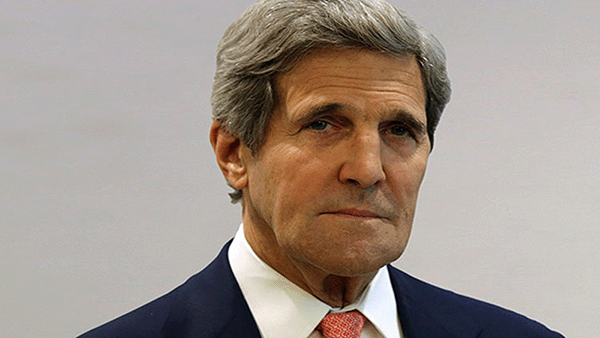
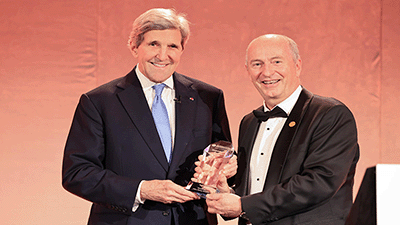
The President's Award 2025 recipient: Secretary John Kerry
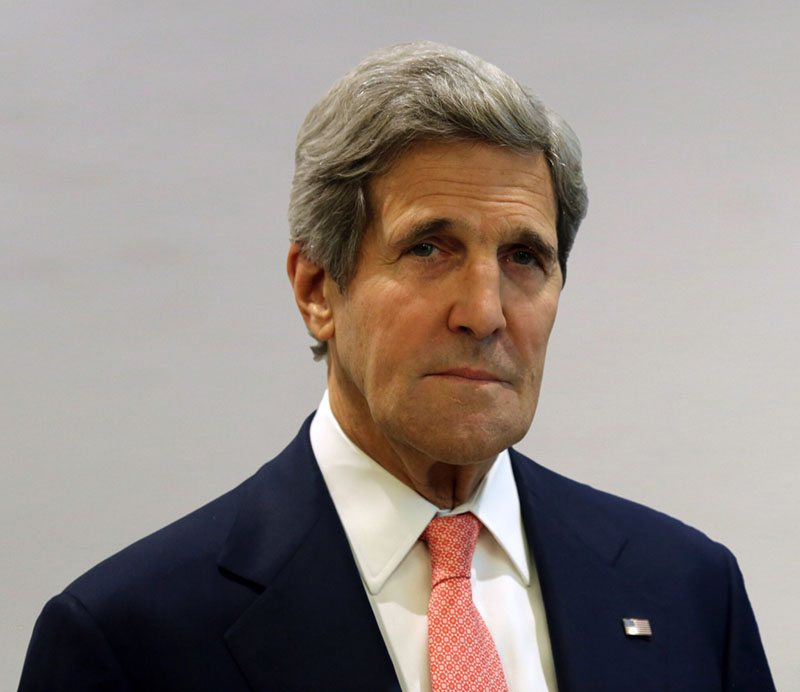
The 2025 EI President’s Award has been awarded to Secretary John Kerry, the former United States Senator, Secretary of State, and the first Special Presidential Envoy for Climate. Secretary Kerry spoke as guest of honour at the International Energy Week Awards Dinner on 27 February 2025 at the QEII Centre in London.
The EI President’s Award is the most prestigious award made by the EI’s President in the name of its global membership and has been made in recognition of Secretary Kerry’s outstanding contribution to global climate diplomacy and advocacy for an ambitious and pragmatic clean energy transition.
A graduate of Yale and Boston College Law School, and a distinguished US Navy veteran who completed two combat tours of duty in Vietnam, Secretary Kerry served 28 years as Senator representing Massachusetts. In 2005, he was the Democratic Party’s nominee for President of the United States, in 2013 he was sworn in as the 68th Secretary of State of the United States and, in 2021, he was appointed by President Biden as the first United States Special Presidential Envoy for Climate, a position he held until March 2024.
Secretary Kerry is the author of best-selling books, including This Moment on Earth, a book on the environment which he co-authored with his wife, Teresa Heinz Kerry. Together they are proud of a blended family that includes two daughters, three sons, and three grandchildren.
Speaking ahead of having received the Award, Secretary Kerry stated: 'I am honored to receive the Energy Institute President’s Award, but view it as shared also by the innovators, entrepreneurs, activists, engineers, and workers that collectively are driving forward the clean energy transition and creating a safer, more prosperous planet. I am more convinced than ever before that embracing modern, abundant clean energy solutions is not just the right thing to do – it’s also good business and sound economics. Those that embrace this opportunity will find themselves in the drivers’ seat of the rest of the 21st century.'
EI President Andy Brown OBE FEI commented:
‘Secretary John Kerry is a figure of great conviction and tremendous effect. As Secretary of State during the Obama administration and the first ever Special Presidential Envoy for Climate under President Biden, he has been instrumental at every key moment in the recent history of global climate diplomacy.
From brokering the historic Paris Climate Accord in 2015 through to the agreement at COP28 to transition away from fossil fuels, Secretary Kerry has been pivotal, building trust and common ground across national boundaries - not least with China to bring about action from the planet’s two largest emitters. His work to help developing nations face the challenges of climate change by mobilising climate finance has also been exemplary.
The President’s Award is the Energy Institute’s highest accolade. We are honoured that Secretary Kerry will join us in London to share his insights at International Energy Week, as our President’s Award recipient 2025.’
The President’s Award
This most prestigious award is made in the gift of the Energy Institute by The President and in the name of the global membership to recognise outstanding leadership and achievement in the energy industry and in support of the EI’s ambition of creating a better energy future for our members and society by accelerating a just global energy transition to net zero.
It is made on an international basis to an individual whose work has brought benefit to society. Recipients will have contributed to addressing solutions relevant to global energy challenges, in particular combatting climate change and opening up access to energy.
Each year, the global membership of the Energy Institute and non-members alike are invited to make nominations for recipients of the award. Nominations can also come from within the EI’s committee networks. The EI Nominations Committee is then tasked with shortlisting candidates that can demonstrate their impact against as many of the criteria below as possible:
- Demonstrable achievement to either: tackle climate change/reduce the carbon footprint of the industry to help reach net-zero by or before 2050, either through the reduction of emissions or through storage of carbon, or to provide access to cleaner supplies of energy.
- Acknowledged by peers as a thought leader in their field. The work of the recipient should be well known to their publics.
- Commitment to raising industry standards, improving knowledge and skills and/or championing the contribution the energy industry makes to society.
- Commitment to making the energy sector more diverse, inclusive and reflective of the society it serves
- Championing the industry among the younger generation.
The EI's Council determines the recipient of the award, which is usually made on an annual basis. The President hosts a lecture for the recipient to share their work and celebrate receiving the award.
Nominations for the President’s Award can be made at any time for consideration by the EI’s Nominations Committee. Your nomination should include the full name of the nominee and the reason for the nomination. A short biography would be welcome, but not essential.
The President's Award 2024 recipient: Dr Nawal Al-Hosany
The 2024 EI President’s Award was awarded to Her Excellency Dr Nawal Al-Hosany, the UAE’s Permanent Representative to the International Renewable Energy Agency (IRENA). She received this prestigious award and spoke as guest of honour at the International Energy Week Dinner 2024.
Energy Institute President Juliet Davenport OBE HonFEI commented on her win:
'Having just returned from COP28, I’ve seen first-hand the enormity of the multilateral operation underway to effect transformative climate action. Dr Al-Hosany has been at the forefront of this work, in her home nation and internationally, advocating for renewable energies and tackling the barriers to their deployment, to accelerate the energy transition.
The President’s Award is the Energy Institute’s highest accolade. As a champion not only for the energy transition, but for women in the industry, Dr Nawal is an extremely deserving recipient and I look forward to presenting her with the Award at International Energy Week.'
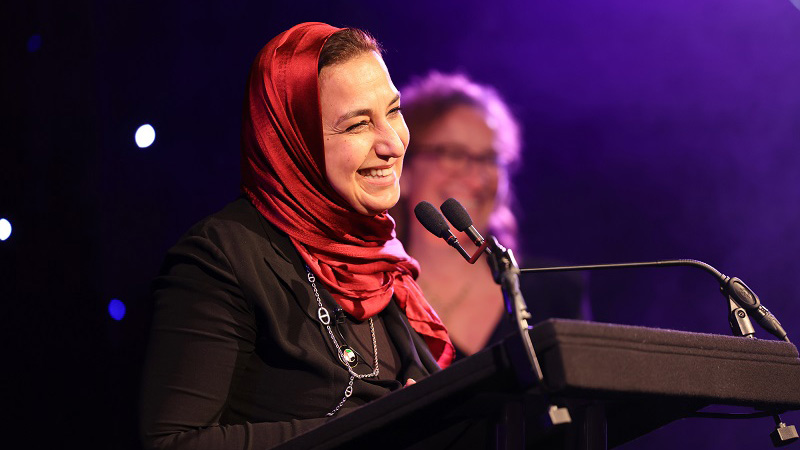
The President's Award 2023 recipient: Damilola Ogunbiyi HonFEI
The 2023 EI President’s Award went to Damilola Ogunbiyi HonFEI, Special Representative of the UN Secretary-General, CEO of Sustainable Energy for All and Co-Chair of UN-Energy. She received the prestigious award and spoke as guest of honour at the International Energy Week Dinner 2023.
Damilola's many achievements include being a Commissioner for the Global Commission to End Energy Poverty, Co-Chair of the COP26 Energy Transition Council, and advocate for the achievement of Sustainable Development Goal 7 (SDG7).
Former EI President Juliet Davenport OBE HonFEI commented on her achievement: 'As a leader who has contributed to combatting climate change and improving access to energy, Damilola is a tireless campaigner for change.'

The President's Award 2022 recipient: Rachel Kyte CMG HonFEI
The 2022 EI President’s Award went to Rachel Kyte CMG HonFEI, Dean of The Fletcher School at Tufts University, and former Special Representative of the UN Secretary-General and CEO of Sustainable Energy for All. She received the prestigious award and spoke as guest of honour at the International Energy Week Dinner 2022.
Rachel Kyte is the 14th dean of The Fletcher School at Tufts University. A 2002 graduate of Fletcher’s Global Master of Arts Program (GMAP) and a professor of practice at the school since 2012, Kyte is the first woman to lead the nation’s oldest graduate-only school of international affairs, which attracts students from all corners of the globe and at all stages of their careers.
Rachel Kyte commented on her achievement: 'I'm honoured to be recognised by the Energy Institute. This is a critical moment in energy transitions underway around the world as they shape new geopolitics. Advancing energy systems that are reliable, affordable and clean is essential in combating rising inequality and resulting instability and mitigating and adapting to climate change - two of the defining challenges of this decade and beyond.'
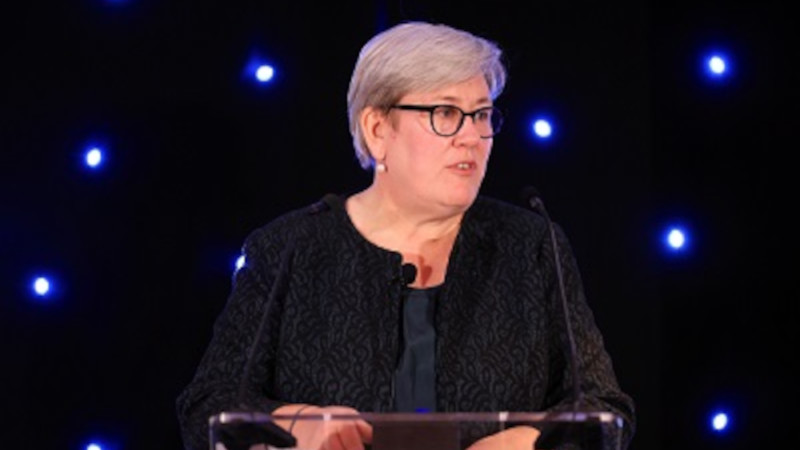
The history
The President's Award is the new successor to the Cadman and Melchett Awards. More information on the previous awards are present below.
Cadman Award
The Cadman Memorial Fund commemorated the late Lord Cadman of Silverdale, Chairman of the Anglo-Iranian Oil Company (now BP) and Past President of the Institute of Petroleum. The first Cadman Award was given on 27 March 1946 and since its initiation, the fund provided for the endowment of a memorial award and lecture on an aspect of the science of petroleum.
Who received the Award?
The Cadman Award was presented to an individual for their outstanding and significant service to the oil industry on an international basis.
A brief history of the Rt. Hon Lord Cadman of Silverdale (John Cadman) and the Cadman Award
John Cadman was President of the Institution of Petroleum Technologists (later the Institute of Petroleum) twice - first, while still Prof John Cadman CMG, from 1916-1917. He was reelected as President in 1935, by which time he was Sir John Cadman KCMG. In 1937, his last year as IP president, he was created the 1st Baron Cadman of Silverdale GCMG.
Simultaneously from 1935-36, as Sir John Cadman KCMG, he was also the President of the Institute of Fuel (Later the Institute of Energy).
(In 2003 the Institute of Petroleum and the Institute of Energy merged to form the Energy Institute.)
Born in the Villas in High Street Silverdale on 7th September 1877, John Cadman later lived at Silverdale House. He was educated at Newcastle High School and gained an MSc at Durham University. As Assistant Manager at Silverdale Colliery and as H.M. Inspector of Mines he worked to reduce loss of life, gaining the North Staffordshire Brigade rescue medal with five clasps.
He served as Government Mining Engineer in Trinidad and as Professor of Mining at Birmingham University. His foresight regarding the Persian oilfields helped to guarantee the supply of oil during the 1st World War. He later became Chairman of the Anglo-Persian Oil Company, now BP.
He was knighted in 1918 and raised to the peerage in 1937. Through his leading contribution in the fields of oil television and international aviation, Cadman played a vital role in three of the most significant developments of the 20th Century.
He died in Bletchley in 1941. His ashes are interred at St Luke's Church, Silverdale.
Melchett Award
The EI Melchett Award was named after one of the first EI Presidents, The Rt Hon Sir Alfred Mond, later to become Lord Melchett and Chairman of ICI. It was instituted in 1930.
Who received the Award?
The Melchett Award was presented biannually to an individual for their outstanding contribution to the study or advancement of the science of fuel and energy, including original research or professional, administrative, or constructive work of an outstanding character involving the scientific preparation or use of fuel, provided the results of such work have been made available within recent date for the benefit of the community.
A brief history of the Rt. Hon. Lord Melchett (Alfred Mond) and the Melchett Award
Early life and educationAlfred Mond was born in Farnworth, Widnes, Lancashire, the younger son of Ludwig Mond, a chemist and industrialist of Jewish extraction who had emigrated from Germany, and his wife Frieda née Löwenthal. He was educated at Cheltenham College and St. John's College, Cambridge but failed his natural sciences tripos. He then studied law at Edinburgh University and was called to the bar by the Inner Temple in 1894.
Business career
Following this he joined his father's business, Brunner Mond & Company as director, later becoming its managing director. He was also managing director of his father's other company the Mond Nickel Company. Other directorships included those of the International Nickel Corporation of Canada, the Westminster Bank and the Industrial Finance Investment Corporation. His major business achievement was in 1926 working to create the merger of four separate companies to form Imperial Chemical Industries (ICI) one of the world's largest industrial corporations at the time. He became its first chairman.
Politics
Mond was also involved in politics and sat as Liberal Member of Parliament for Chester from 1906 to 1910, for Swansea from 1910 to 1918 and for Swansea West from 1918 to 1923. He served in the coalition government of David Lloyd George as First Commissioner of Works from 1916 to 1921 and as Minister of Health (with a seat in the cabinet) from 1921 to 1922. He later switched party and represented Carmarthen from 1924 to 1928, initially as a Liberal. However, in 1926 Mond became a Conservative, after falling out with Lloyd George over the former Prime Minister's controversial plans to nationalise agricultural land.
Mond was created a baronet, of Hartford Hill in Great Budworth in the County of Chester, in 1910, and was admitted to the Privy Council in 1913. In 1928 he was raised to the peerage as Baron Melchett of Landford in the County of Southampton.
Benefactions, Zionism and honours
His father had bequeathed a collection of old master paintings to the National Gallery and Alfred provided housing for them in 1924. In 1929 he provided land in Chelsea for the Chelsea Health Society.
He first visited Palestine in 1921 with Chaim Weizmann and subsequently became an enthusiastic Zionist, contributing money to the Jewish Colonization Corporation for Palestine and writing for Zionist publications. He became President of the British Zionist Foundation and made financial contributions to Zionist causes. He was the first President of the Technion in 1925. Melchett founded the town of Tel Mond, now in Israel.
He was elected a Fellow of the Royal Society in 1928 and received a number of honorary degrees from Oxford, Paris, and other universities.
Personal life
In 1894 Mond married Violet Goetze and they had one son, Henry Ludwig, and three daughters. Mond died in his London home in 1930, and his son succeeded to the barony.